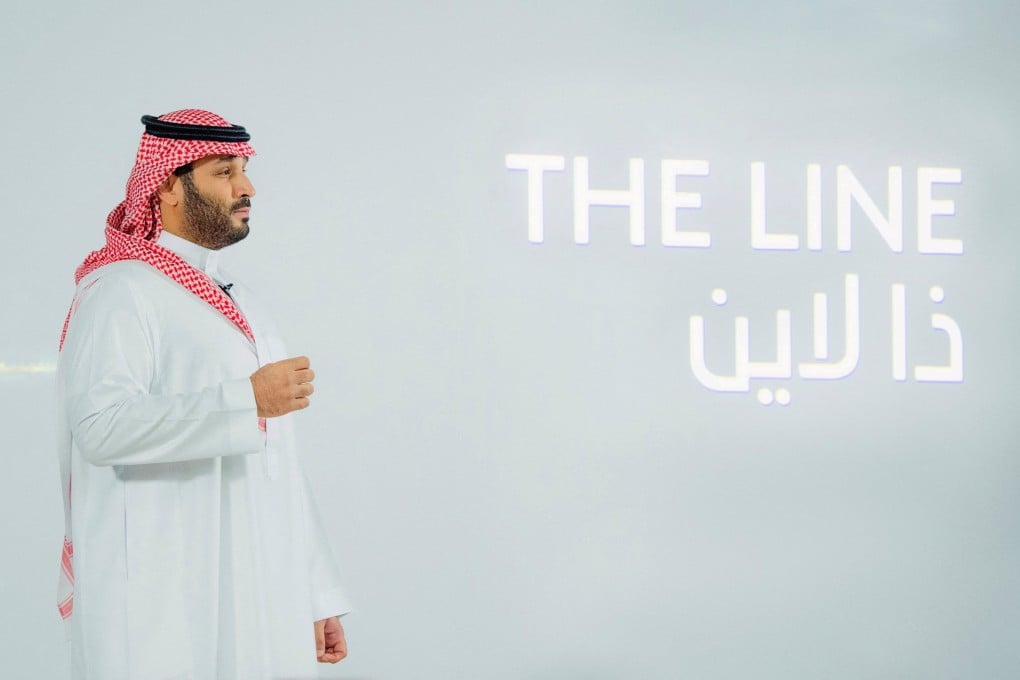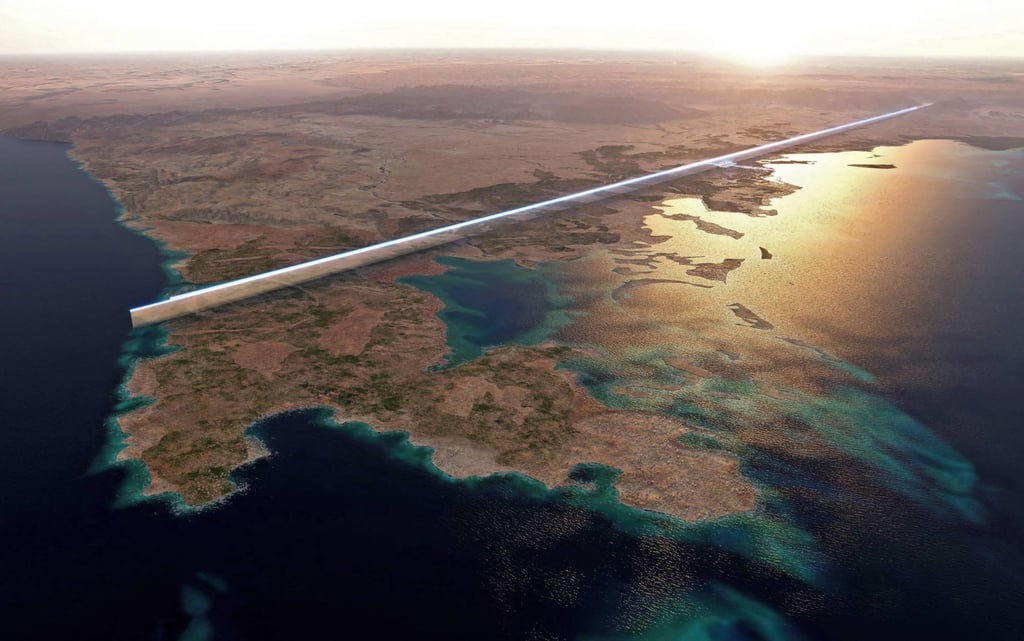Advertisement
Inside Out | Saudi crown prince’s desert megacity is a classic case of billionaire hubris
- Saudi Arabia plans to build a 170km-long skyscraper across empty desert, providing zero-carbon living in one of the world’s top fossil-fuel economies
- The unrealistic vision suggests Mohammed bin Salman has been listening to yes men for too long
Reading Time:4 minutes
Why you can trust SCMP
5

There is something beguiling about billionaires’ trophy obsessions, no matter how ridiculously dystopian they are. Think of the billions being spent by Elon Musk, Richard Branson and Jeff Bezos on space travel and the ego-driven quest to reach Mars.
Advertisement
But there is something more disturbingly gravity-bound in Saudi Crown Prince Mohammed bin Salman’s Neom, a proposed city in the desert, in which the defining feature will be “The Line”: a 170km-long mirror-clad skyscraper, or “groundscraper”, 200m wide and 500m high, that cuts deep across the austere desert starting from the Red Sea.
When (or rather if) complete, it would be intended to house 9 million people “in an environment free from roads, cars and emissions”, providing in the words of the crown prince (colloquially known as MBS) “a civilisational revolution that puts humans first, based on a radical change in urban planning”. He calls it “zero gravity urbanism”. Down in the gravity-bound Saudi desert, the ultimate price tag stretches beyond US$500 billion.
The Line – indeed the entire Neom project, which is part of MBS’ Saudi Vision 2030 to diversify away from oil – would be more welcome if it were convincingly focused on pioneering a zero-emissions future. MBS talks of green power, sustainable vertical farming, desalinated water supplies and a train service that will whisk residents from end to end in just 20 minutes.

If this is not unhinged billionaire hubris, what is? Can we really imagine wealthy Saudis giving up their cars to share a high-speed train with the migrant workers that will undoubtedly be needed to keep the city running? As Robert Worth wrote in The New York Times last year, “why would anyone want to move there? And why a city shaped like a strand of capellini?”
Advertisement

Advertisement
